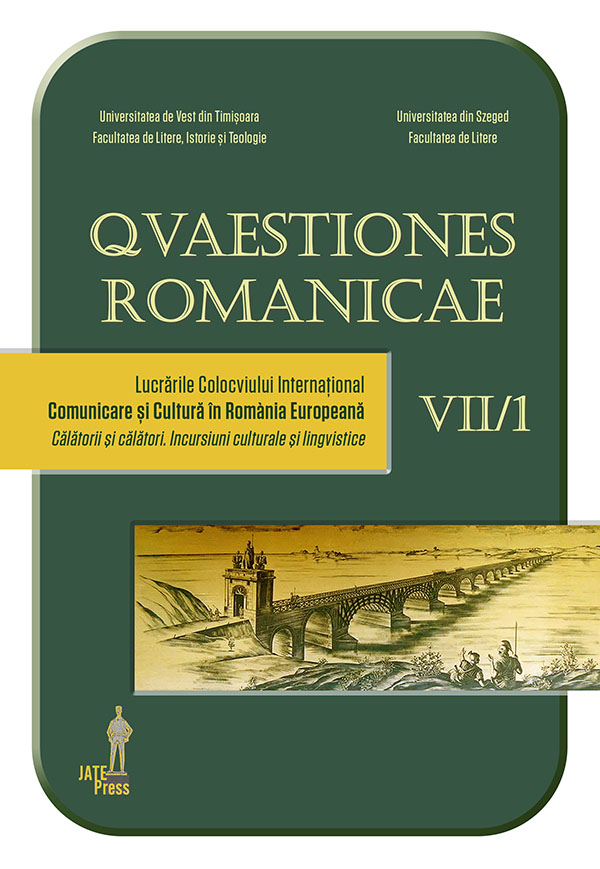Ricardo Palma y España, la mirada de un viajero peruano
Abstract: (Ricardo Palma and Spain, the View of a Peruvian Traveler) Ricardo Palma is one of the most important Peruvian writers that left a fundamental legacy for his countrymen: Tradiciones peruanas, a testimony of the Peruvian traditions that helped to consolidate the national identity of his country. Even if there were critics that considered Palma a colonialist writer, there are many evidence that the objective of the writer was to present a complete history of Peru through the literature so that it wouldn’t be lost what the official history would not register. In 1892 took place the Conmemoration of the Fourth Centenary of the Discovery of America. Ricardo Palma participated at this event and the result of this journey to Spain was his work Recuerdos de España, notas de viaje, esbozos, neologismos y americanismos, an analysis about a country in crisis, before and after 1898. In Spain, even if his interest was focused on the history and the literature, and not on politics (even if he left us literary portrets of the main politicians of that period), Palma was in contact with important people of the government, like for example, Antonio Cánovas del Castillo, who’s library impressed the Peruvian author. As director of the National Library, Palma was attempting with all his strenght and his patriotism to recompose a bibliographic background destroyed after the invasion of the Chilean troops, during the Pacific war. This journey and the book reveals another side of Ricardo Palma’s patriotism, the one that concerns his difficult struggle to convince the members of the Royal Academy to introduce in the diccionary multiple american neologisms. Unfortunately, he could not conclude this work, that produced him a lot of grief. The last part of his book he dedicates it to defend the use of many neologisms and americanisms, and according to the author, is the part that could offer relative interest, more than the first part dedicated to journey notes and the second part dedicated to the appreciations about the men of letters with whom he maintained contact.
Keywords: Tradicionist, national identity, neologisms, americanisms, journey.
Resumen: Ricardo Palma es uno de los más importantes escritores peruanos que dejó un legado fundamental para sus connacionales: las Tradiciones peruanas, un testimonio de las costumbres peruanas que ayudó a consolidar la identidad nacional de su país. Aunque hubo críticos que tacharon a Palma de escritor colonialista, hay suficientes muestras sobre el objetivo del escritor de presentar una historia completa del Perú a través de la literatura, para que no se perdiera lo que la historia oficial no iba a registrar. En 1892 tuvo lugar con mucho fasto la conmemoración del cuarto centenario del descubrimiento de América. Ricardo Palma participó a dicho evento y el resultado de este viaje a España fue su obra Recuerdos de España, notas de viaje, esbozos, neologismos y americanismos, un análisis sobre un país en crisis, antes y después de 1898. En España, aunque su interés se concentraba en la historia y la literatura, y no en la política (aunque nos ofrece retratos de la élite política del momento), Palma estuvo en contacto con hombres destacados del gobierno, como, por ejemplo, Antonio Cánovas del Castillo, cuya biblioteca dejó muy impresionado al tradicionista. Como director de la Biblioteca Nacional, Palma intentaba con todas sus fuerzas y con todo su patriotismo recomponer un fondo bibliográfico destrozado tras el saqueo de las tropas chilenas, durante la guerra del Pacífico. A través de este viaje y el libro se nos revela otra faceta del patriotismo de Ricardo Palma, la que concierne su difícil batalla de convencer a los miembros de la Real Academia de introducir en el diccionario múltiples neologismos americanos. Desafortunadamente, no consiguió llevar a cabo dicha tarea, lo que le produjo un gran disgusto. La última parte de su libro la dedica a defender el uso de muchos de los neologismos y americanismos, y según el autor, es la parte que podría ofrecer relativo interés, más que la primera parte dedicada a las notas de viaje y la segunda dedicada a sus apreciaciones sobre los literatos con quienes mantuvo contacto.
Palabras-clave: tradicionista, identidad nacional, neologismos, americanismos, viaje.
